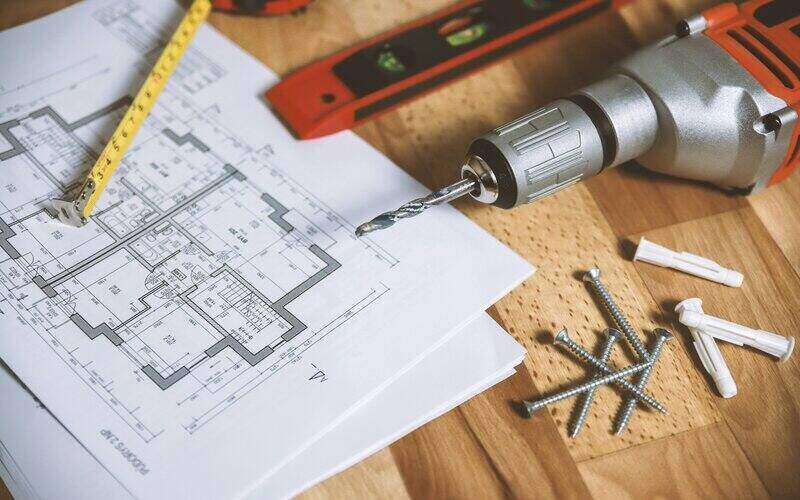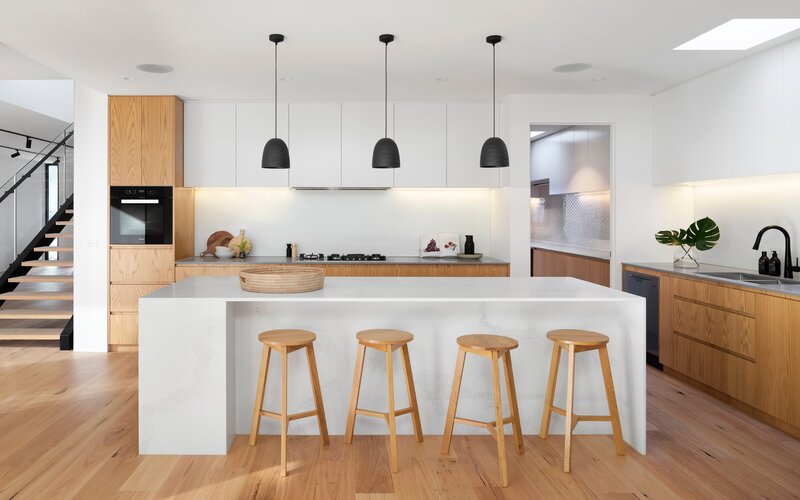Like bees to honey, Aussies are rushing to refinance their home loans to a sweeter deal off the back of rising interest rates and cost of living pressures. In fact, ABS statistics for June 2022 revealed the value of external owner-occupier refinancing (i.e. home loans refinanced from one lender to another) rose 9.7% to $12.7 billion - an increase of 24.6% compared to the same period a year ago.
For a number of Australians, refinancing is the equivalent to finding a pot of gold at the end of the rainbow - putting savings back in pockets at a time when cost of living pressures are putting a strain on household budgets. Mortgage prisoners do not have that luxury, as they are unable to refinance their mortgage for a number of reasons that we’ll look at below.
The types of mortgage prisoner
Falling property price, rising loan-to-value ratio
Unloan CEO Daniel Oertli said one type of mortgage prisoner is a borrower that was teetering on the limit of a particular loan-to-value (LVR) ratio, but has since breached that limit because their property has fallen in value.
“We’re in a market now where that is starting to happen, especially if you bought at the peak and you no longer qualify for that LVR,” Mr Oertli told Savings.com.au.
“So for instance, say you bought at an LVR of 80%, but because your house price has fallen and you haven’t put in anything above your current repayments, your LVR might now be 85% which means you’re into the more expensive category of home loans.
“The very best deals range typically for those LVRs between 70 and 80% LVR, which means you would now be unable to access the deals you might have previously been able to when the house price was where you bought it at.”
Higher serviceability
Another type of mortgage prisoner is one that’s ensnared by responsible lending standards, according to Mr Oertli.
“In this case your LVR is fine, but the higher serviceability requirements mean the new assessment (when refinancing) is done at a higher rate plus the buffer, not just the rate you are currently on,” he said.
“This is particularly the case in a rising rate environment where you obviously have qualified previously with the buffer in place, but now that rates are up again, even though you’d be better off financially, you can’t necessarily qualify at the current rate plus the buffer.”
In response to soaring household debt amid the booming property market, the Australian Prudential Regulation Authority (APRA) lifted the serviceability buffer for home loans from 2.50% to 3.00% back in October 2021.
The serviceability buffer exists to ensure you can afford not only the advertised interest rate, but withstand any potential rate rises as well.
As an example, say you have a 2.00% fixed home loan rate that is due to expire next month. Originally this 2.00% p.a. fixed home loan was serviced under APRA’s previous buffer of 2.50%, meaning the bank assessed your ability to repay based on a 4.50% p.a. interest rate. Now with rates rising, you look to refinance to a 5.99% p.a. fixed rate home loan. Under APRA’s new buffer, your ability to repay is now based on a 8.99% interest rate, double what you were paying previously which as a result you now do not qualify for.
Insufficient credit rating
Mr Oertli says a third type of mortgage prisoner is one that’s trapped by their own credit report.
“You might have missed a repayment and again some of the very best deals are quite stringent about your credit history,” he said.
“Even if your LVR and serviceability is not a problem, if your credit history has deteriorated, for whatever reason, you may not otherwise be able to access a better mortgage deal.”
Ways to avoid becoming a mortgage prisoner
There are a number of steps you can take now as a mortgagor to avoid feeling like you are trapped behind bars in the future.
Additional repayments
Mr Oertli says if you pay more than your minimum repayments, you may be able to escape the mortgage prisoner effect.
“However if your property price falls and you continue to overpay, it is likely you will be susceptible to becoming a mortgage prisoner as a result of that reduction in price,” he said.
Reduce expenses
If you find yourself faced with a serviceability issue, reducing expenses can ease the burden.
“There’s only a certain limit to what some people can do to reduce expenses, but taking a hard look at your budget and finding any discretionary items to cut down on can potentially reduce susceptibility to becoming a mortgage prisoner,” Mr Oertli said.
Reduce debt
Cutting down on expensive debt is another tool to potentially avoid becoming a mortgage prisoner, Mr Oertli says.
“Outside of your home loan, when you are being assessed, lenders will also look at things like your credit cards,” he said.
“It doesn’t matter if you’ve got a balance outstanding on the credit card or not, lenders will count it anyway with the assumption that you could take up the full limit of the credit card. Just having the credit card open actually means it gets counted as part of your serviceability.
“Either asking your credit provider to reduce the balance so at least less of it is counted or potentially just cancelling the credit card would mean you have nothing counted against you as a repayment commitment that a new lender will take into account.
“Lenders will generally tell you this as well if you are close to serviceability as a step to achieve a successful home loan refinance.”
Advertisement
Buying a home or looking to refinance? The table below features home loans with some of the lowest interest rates on the market for owner occupiers.
| Lender | Home Loan | Interest Rate | Comparison Rate* | Monthly Repayment | Repayment type | Rate Type | Offset | Redraw | Ongoing Fees | Upfront Fees | Max LVR | Lump Sum Repayment | Extra Repayments | Split Loan Option | Tags | Features | Link | Compare | Promoted Product | Disclosure |
|---|---|---|---|---|---|---|---|---|---|---|---|---|---|---|---|---|---|---|---|---|
5.54% p.a. | 5.58% p.a. | $2,852 | Principal & Interest | Variable | $0 | $530 | 90% |
| Promoted | Disclosure | ||||||||||
5.49% p.a. | 5.40% p.a. | $2,836 | Principal & Interest | Variable | $0 | $0 | 80% |
| Promoted | Disclosure | ||||||||||
5.64% p.a. | 5.89% p.a. | $2,883 | Principal & Interest | Variable | $250 | $250 | 60% |
| Promoted | Disclosure | ||||||||||
5.64% p.a. | 5.89% p.a. | $2,883 | Principal & Interest | Variable | $248 | $350 | 60% |
| Disclosure |
Image by Andrea Piacquadio via Pexels

Ready, Set, Buy!
Learn everything you need to know about buying property – from choosing the right property and home loan, to the purchasing process, tips to save money and more!
With bonus Q&A sheet and Crossword!







 Denise Raward
Denise Raward
 Harry O'Sullivan
Harry O'Sullivan
 Bea Garcia
Bea Garcia

 Hanan Dervisevic
Hanan Dervisevic

